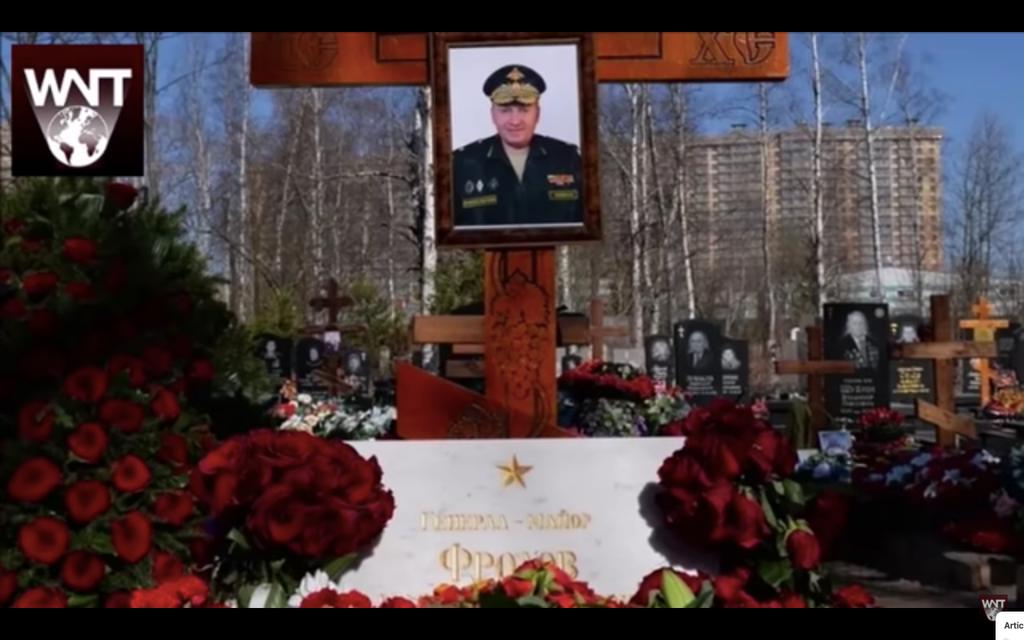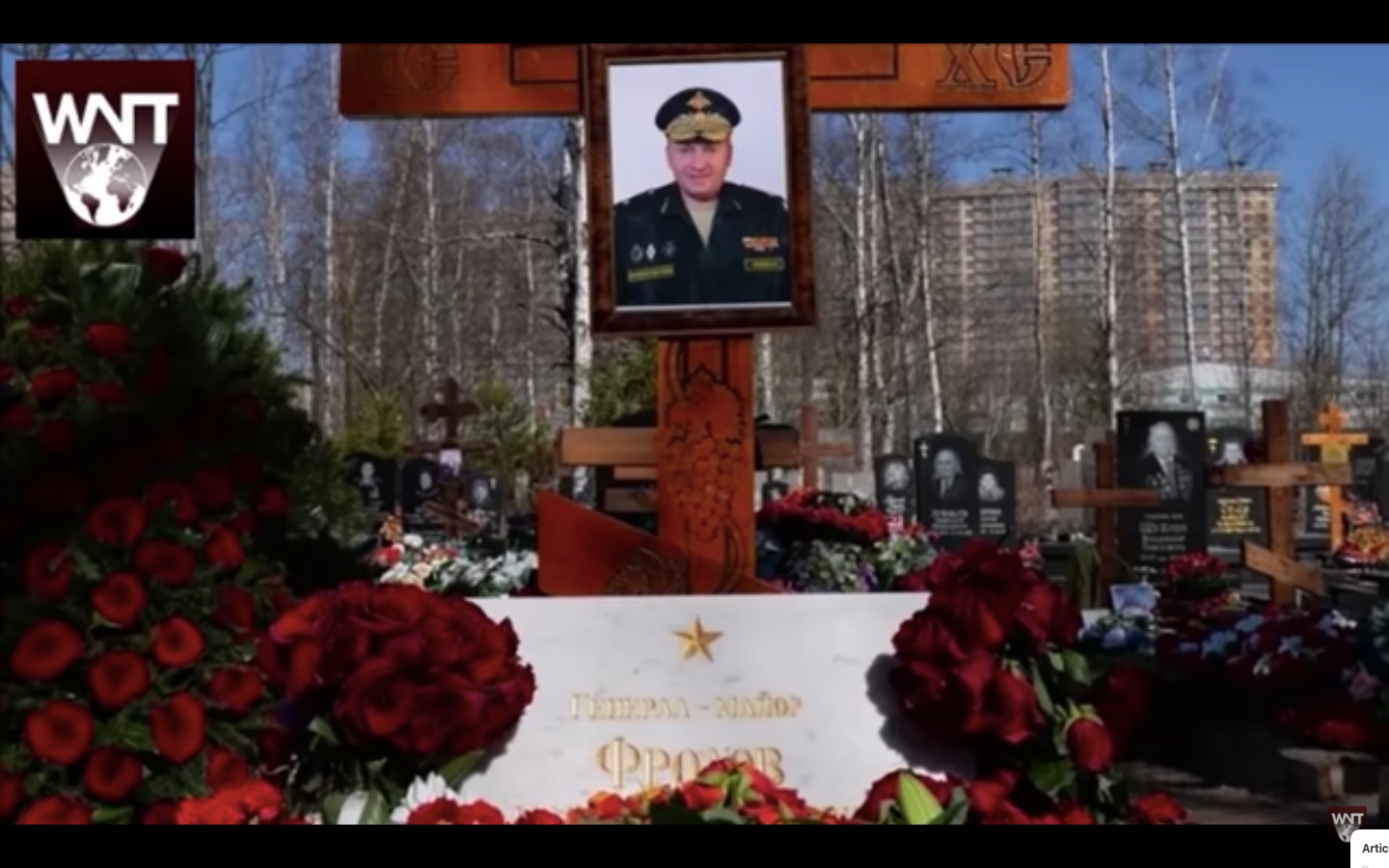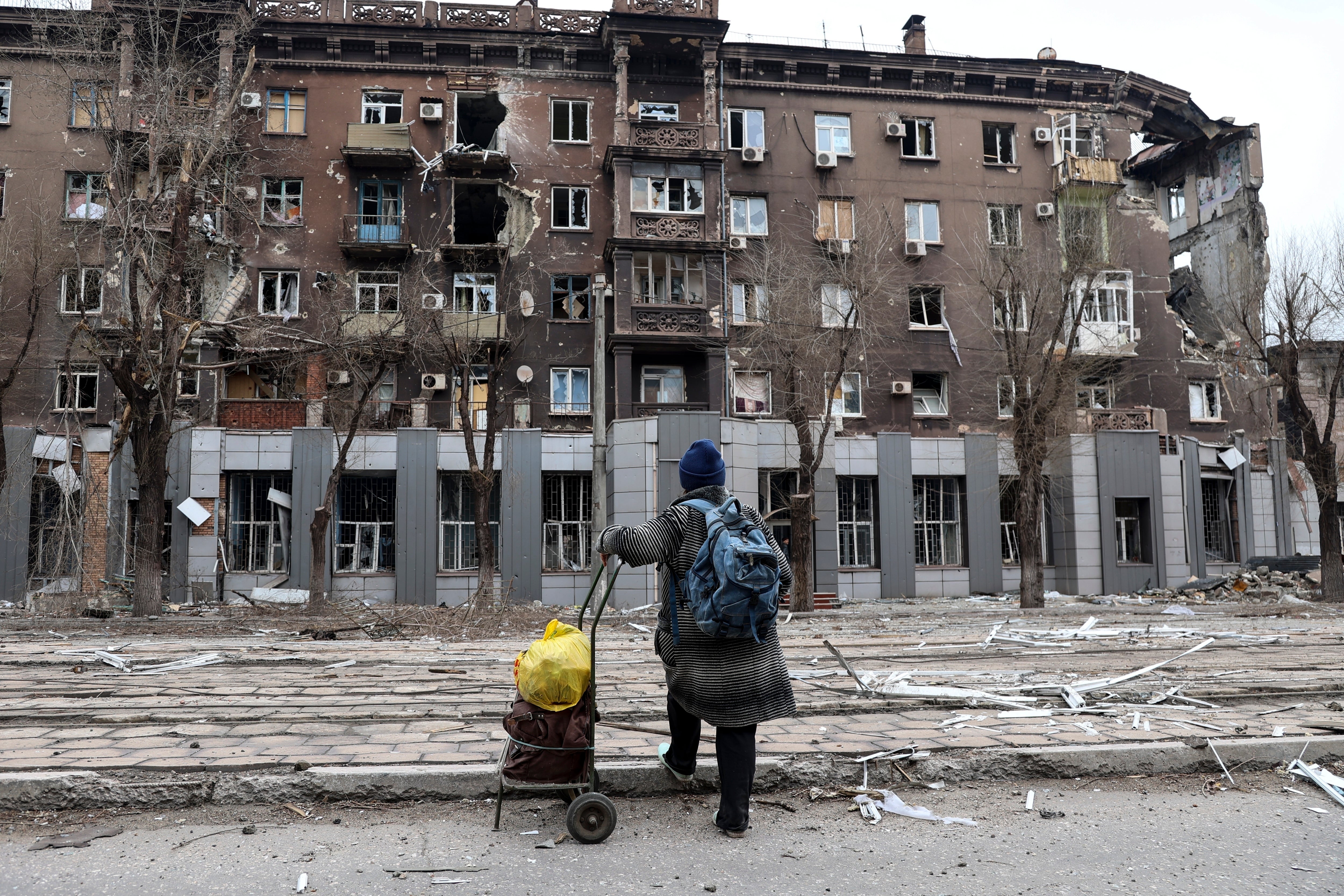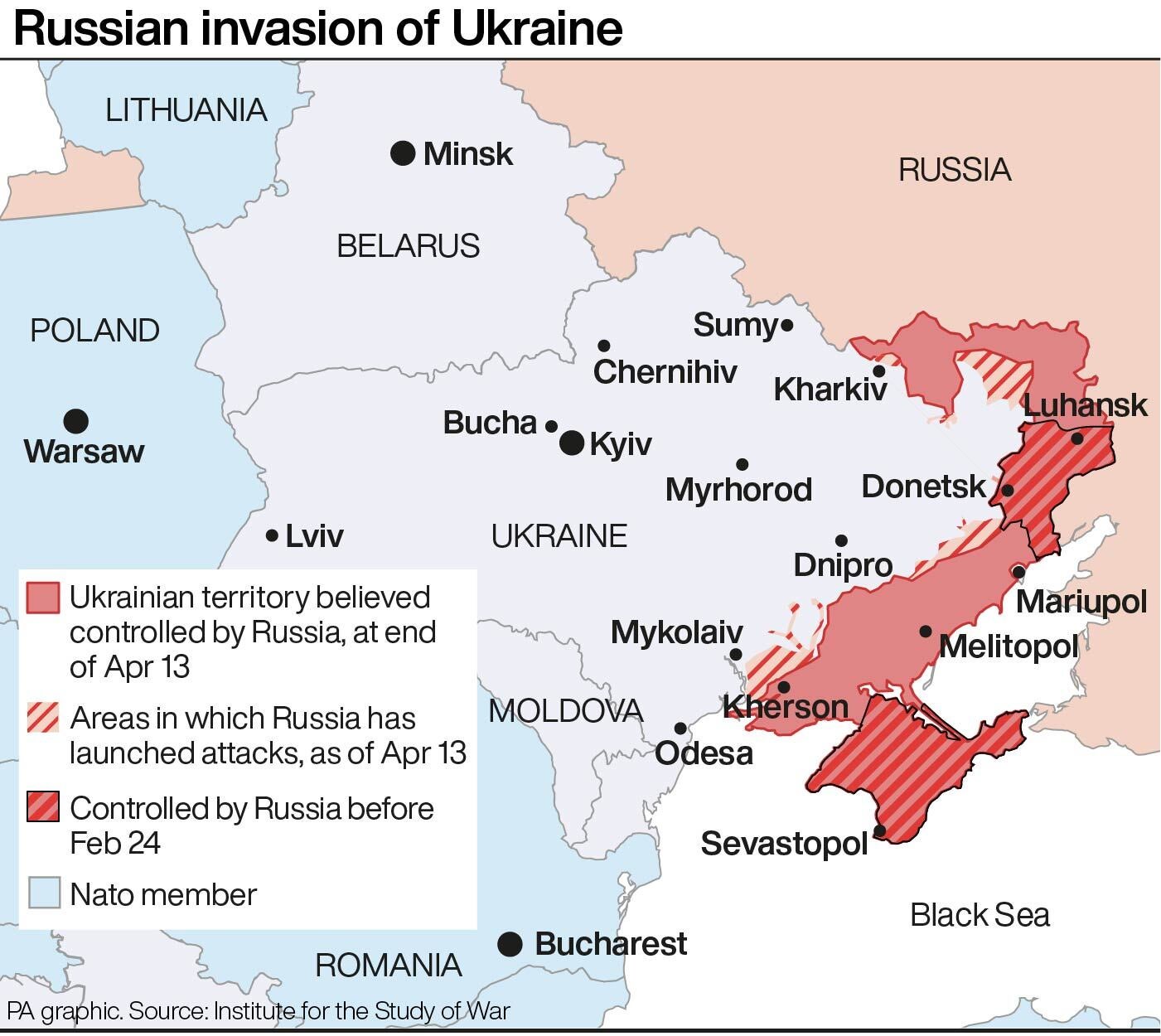
Russia has lost another military general in the war on Ukraine, in the latest blow for Vladimir Putin.
Vladimir Frolov, deputy commander of Russia’s 8th army, was given a military funeral in St Petersburg’s Serafimovskoe Cemetary on Saturday.
Alexander Beglov, governor of St Petersburg, confirmed the death in a statement saying Frolov fought in the Donbas region of eastern Ukraine.
His statement read: “Today we say goodbye to a real hero. Vladimir Petrovich Frolov died a heroic death in battle with Ukrainian nationalists.
“He sacrificed his life so that children, women and the elderly in the Donbas would no longer hear bomb explosions.
“So that they stop waiting for death and leaving home, to say goodbye as if it were the last time.”

Beglov described Frovlov as a “true patriot” and a “brave” man.
Frolov is the latest of several Russian generals reported to have been killed since Russia invaded Ukraine on 24 February.
Despite the loss of high ranking military officials, President Putin continues to claim that his “special military operation” is going according to plan.
Ukraine claims that as many as 20,000 Russian troops have died since the war began nearly two months ago, compared to 2500 to 3000 of their own soldiers.

It comes as Russia gave a deadline for fighters in besieged Mariupol to surrender, that expired early on Sunday. The Russian Defense Ministry gave the Ukrainians at Mariupol’s giant Azovstal steel mill until 1pm on Sunday (10am GMT) to give up, saying that those who put down their weapons will be “guaranteed to keep their lives.”
Russian Defence Ministry spokesman Maj. Gen. Igor Konashenkov said that the Ukrainian military command had banned its troops from surrendering. He said the Russian military received the information from intercepted communications.
Konashenkov warned that “all those who will continue resistance will be destroyed.”

He claimed that along with Ukrainian troops, there are about 400 foreign mercenaries encircled at Azovstal, most of them from European countries and Canada, communicating in six languages, according to intercepts. Konashenkov’s claim couldn’t be independently verified.
The Independent has a proud history of campaigning for the rights of the most vulnerable, and we first ran our Refugees Welcome campaign during the war in Syria in 2015. Now, as we renew our campaign and launch this petition in the wake of the unfolding Ukrainian crisis, we are calling on the government to go further and faster to ensure help is delivered. To find out more about our Refugees Welcome campaign, click here. To sign the petition click here. If you would like to donate then please click here for our GoFundMe page.







